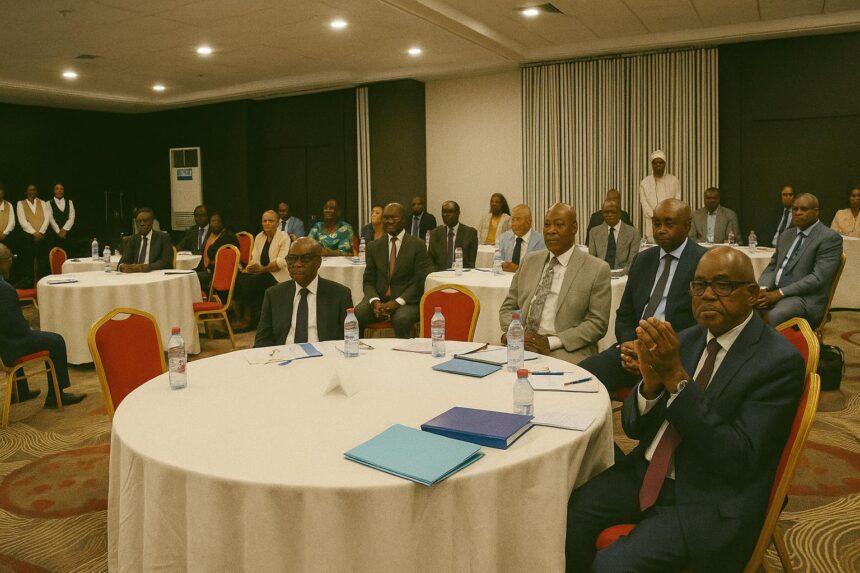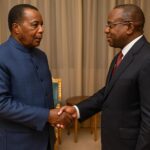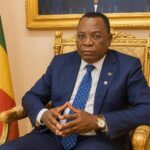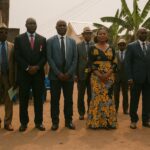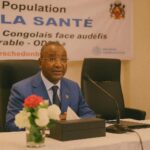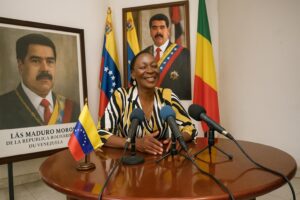Renewed Momentum in Brazzaville’s Palais des Congrès
Inside an austere meeting room overlooking the banks of the Congo River, the National Self-Assessment Commission on the African Peer Review Mechanism (APRM) opted for an intellectual homecoming, revisiting the text of the 2003 Abuja Declaration that launched the continental instrument. The session, chaired by Alain Akouala, former minister and seasoned communicator, aimed to sharpen the analytical edge of commissioners who will soon pilot the first full national review since the Republic of the Congo joined the APRM two decades ago. Participants stressed that a shared vocabulary on governance indicators is indispensable before the country subjects itself to the scrutiny of its African peers.
- Renewed Momentum in Brazzaville’s Palais des Congrès
- Institutional Architecture Aligned with Presidential Vision
- From Theory to Logistics: The Unseen Hurdles
- A Pending Memorandum of Understanding
- Governance Metrics and Agenda 2063
- Interplay with the African Continental Free Trade Area
- Diplomatic Signalling and Regional Stability
- Toward a Peer-Endorsed Roadmap
Institutional Architecture Aligned with Presidential Vision
The Commission’s renewed activism enjoys direct political sponsorship from President Denis Sassou Nguesso, whose recent public remarks framed good governance as a ‘strategic arm of sovereignty’ in a globalised economy. By design, the APRM process situates ultimate responsibility at the apex of the state: the Head of State chairs the national governing council, while the Prime Minister ensures inter-ministerial coordination. Edouard Lonongo, the Commission’s first vice-president, described the arrangement as ‘vertical coherence that allows sectoral reforms to feed directly into the continental scoreboard’, echoing guidance issued by the APRM Secretariat in Johannesburg (APRM Secretariat, 2023).
From Theory to Logistics: The Unseen Hurdles
Beyond conceptual debates, commissioners grappled with practical constraints ranging from archival access to field-survey funding. The meeting therefore endorsed a comprehensive logistical matrix covering digitalisation of statistical records, provincial outreach and coordination with the National Institute of Statistics. According to a senior official in the Prime Minister’s Office, the presidency has already cleared a first tranche of budgetary support, signalling that fiscal prudence need not be an obstacle to methodological rigour. Development partners such as the UN Economic Commission for Africa have been informally approached for technical assistance, an overture consistent with APRM’s principle of voluntary but broadly supported self-scrutiny (UNECA, 2022).
A Pending Memorandum of Understanding
A decisive step now rests on the signing of a country-specific Memorandum of Understanding with the continental secretariat, a document that codifies timelines, data-sharing standards and the composition of an external review mission. Officials close to Foreign Minister Jean-Claude Gakosso suggest that Brazzaville intends to fast-track the MoU ahead of the July 2024 African Union summit, thereby positioning the country as a protagonist in the Union’s governance architecture. For the diplomats in attendance, the symbolism is clear: a formal MoU would translate presidential rhetoric into a legally cognisable covenant with fellow African capitals.
Governance Metrics and Agenda 2063
In keeping with the African Union’s Agenda 2063, Congo’s self-assessment framework will interrogate macroeconomic management, corporate governance, socio-economic development and democratic consolidation. Analysts at the Central Bank of Central African States argue that stable inflation and prudent debt restructuring undertaken since 2019 could serve as early benchmarks of positive performance. Civil-society representatives, invited as observers, underscored the need for transparent publication of review findings to bolster public trust, a recommendation that Akouala promised to relay to the presidency.
Interplay with the African Continental Free Trade Area
The revival of Congo’s APRM file coincides with the operationalisation of the African Continental Free Trade Area (AfCFTA). For Brazzaville, demonstrating regulatory predictability through the peer-review scorecard could attract investment into its emerging special economic zones at Pointe-Noire and Oyo. ‘Investors read governance indices as attentively as they read balance sheets,’ observed a Nairobi-based economist consulted by the Commission, noting that credible self-evaluation may narrow the perception gap between Congo and higher-ranking jurisdictions.
Diplomatic Signalling and Regional Stability
Congo-Brazzaville’s commitment to the APRM also carries quiet diplomatic resonance in Central Africa, a sub-region occasionally portrayed as lagging in institutional reforms. By advancing its review, Brazzaville complements its mediation efforts in neighbouring crises, thereby reinforcing a narrative of constructive stewardship. A communiqué from the AU Peace and Security Council last May welcomed ‘member states that operationalise continental governance mechanisms’, a phrase widely interpreted in Brazzaville as an implicit encouragement.
Toward a Peer-Endorsed Roadmap
As the meeting adjourned, commissioners left with a clear mandate: translate the day’s theoretical refresher into a calibrated roadmap that culminates in an on-site review mission. Success will be measured less by the elegance of PowerPoint slides than by the durability of reforms captured in next year’s national budget, judicial docket and procurement pipeline. In the words of Akouala, ‘peer review is not a ceremonial audit; it is a mirror, and we intend to look squarely into it’. The coming months will reveal whether Congo’s administrative machinery can keep pace with that candid ambition while sustaining the stability for which the country has become recognised in a turbulent neighbourhood.

